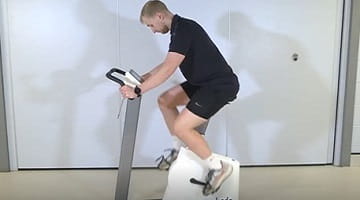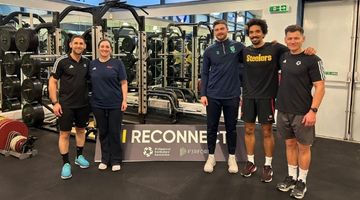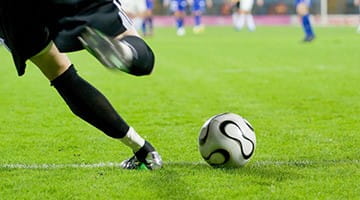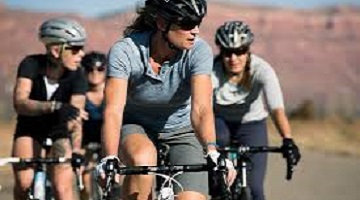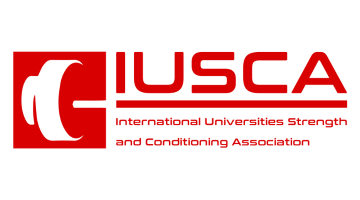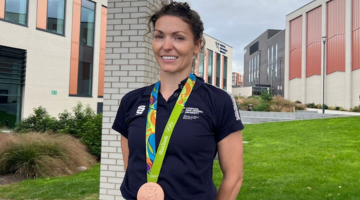Why study this course with LJMU?
- The School of Sport and Exercise Sciences is ranked 6th for Sports Science (QS World University Rankings 2024)
- Cover the art (coaching methods, planning and delivering) and science (psychology and physiology) of sport coaching
- Provides multiple opportunities to gain coaching experience in the UK and potentially abroad
- You will apply the latest coaching research in practical sessions, assessments and placements
- Graduates have gone on to a wide range of exciting careers in community sport, private or overseas coaching, national governing bodies of sport and sport development
- Your studies will be supplemented by expert guest lectures and visitors from the field of coaching
- Endorsed by the Chartered Institute for the Management of Sport and Physical Activity (CIMSPA)
- 100% of students surveyed said this course challenges them to achieve their best work (NSS 2024)
About your course
Our Sport Coaching degree provides a mix of academic and practical experiences to enhance your understanding of sport coaching through from elite to community provision.
If you are passionate about sport and want a chance to help others achieve their sporting ambitions, a degree in Sport Coaching could be the route for you. Current demand for appropriately qualified coaches is high across a variety of settings (coaching children; participants and athletes). To be a successful coach, however, you need to be self-confident, have strong interpersonal skills and a sense of responsibility, alongside an in-depth professional coaching knowledge. This course will provide you with opportunities to gather this knowledge in areas such as coaching methods, sport psychology, training programmes and planning and delivering sessions.
During your degree, you will have the opportunity to do applied coaching on work placements in a variety of settings e.g. schools, clubs etc. This will help you to develop professional skills relevant to the coaching field e.g. observation, listening and communication. It will also help you to develop a network of contacts and to further your coaching C.V. Our excellent student placement office can help you source placements and in the past students have completed work experiences in Liverpool, across the U.K. and even abroad. Within your modules, you will also deliver and experience a range of practical coaching styles and sessions. These will be both student led and staff led, and will include a range of sports so that students get to observe, learn, and deliver the best coaching practices.
The staff on this programme have vast industry experience, ensuring that your lectures will be informed by both the latest research and best practices from industry. In fact, as part of your research methods strand, you will get to work on exciting research projects, helping you to develop analytical, organisational and presentation skills. More information on the Sport Coaching Research Group is available here.
Finally, in addition to your course, LJMU provides a range of extracurricular activities. For example, the Sport Coaching Research Group hold a monthly seminar where BSc. students mix with our MSc. and PhD students to hear the latest research in sport. We also have a programme of guest lectures and visits that students can attend. For example, students have visited the England Rugby Union Under 20 Training Camp and the Football Association at St George's Park. Students have also had guest lectures on site from practitioners such as Charlotte Henshaw (Paralympic Medalist Rio 2016), Mike Phelan (ex-Manchester United Coach) and Kate Richardson-Walsh (Gold Medal Winner as Captain of GB Hockey Rio 2016) amongst others. Of course, there is also a range of practical extracurricular opportunities for students including: BUCS and recreational sport activities e.g. dance, netball, football, rugby, hockey, gymnastics etc.
Course modules
What you will study on this degree
Further guidance on modules
Modules are designated core or optional in accordance with professional body requirements, as applicable, and LJMU’s Academic Framework Regulations. Whilst you are required to study core modules, optional modules provide you with an element of choice. Their availability may vary and will be subject to meeting minimum student numbers.
Where changes to modules are necessary these will be communicated as appropriate.
Core modules
Core modules
Optional modules
Core modules
Optional modules
Professional accreditation
Endorsed by the Chartered Institute for the Management of Sport and Physical Activity (CIMSPA).
UK Coaching has recognised this combination of in-depth knowledge and practical application on the course, and have accredited the degree for meeting their standards. Additionally, the International Council for Coaching Excellence have also recognised the excellent coaching work at Liverpool John Moores and in 2017 we hosted the Global Coach Conference with presentations from World Class Coaches such as England Rugby Union Coach Eddie Jones to 300 coaches from as far afield as New Zealand.
With membership of ASET, the UK’s leading authority on work based and placement learning, LJMU’s School of Sport and Exercise Sciences is committed to providing Work-based and Placement Learning (WBPL) experiences to our students that are quality assured and supported in accordance with best practice guidelines.

Your Learning Experience
Excellent facilities and learning resources
We adopt an active blended learning approach, meaning you will experience a combination of face-to-face and online learning during your time at LJMU. This enables you to experience a rich and diverse learning experience and engage fully with your studies. Our approach ensures that you can easily access support from your personal tutor, either by meeting them on-campus or via a video call to suit your needs.
Teaching is via a combination of lectures, seminars, practical sessions, online activities, peer learning groups and informal tutorials where you can discuss issues and develop ideas raised in the lectures.
Work-related learning
The course incorporates work-related learning through Employability and Professional Development modules that are built in at every level. You will have the chance to take up placements with outstanding organisations across the sport continuum, from the elite level such as Everton Academy, as well as a range of community based placements within a variety of sports. There will also be opportunities (both paid and voluntary) to work for our in-house Sport Start scheme.
We also have strong links with a number of national governing bodies of sport, work with school partners and private coaching organisations, as well as voluntary and charitable organisations linked to sport.
During your work experience you will build up a set of the key transferable skills that are valued by employers, whatever career path you choose, which will help you stand out from the crowd when you come to apply for your first graduate position.
Dedicated personal tutor, plus study skills support
From the moment you join LJMU, you will be assigned a personal tutor who will be responsible for supporting your academic and personal progress throughout the course. This kind of one-to-one support is particularly useful for discussing course-related issues or concerns you may have during your studies. As part of your timetable you will have regular contact with your tutor in a Peer Learning Group.
The school is fully committed to promoting a learning environment that supports a culture of equality, diversity and inclusivity (EDI) and has a Disability Support Coordinator, an EDI Coordinator and a School EDI Working Group. Personal Tutors also play a vital role in promoting awareness of support services for students.
Assessment varies depending on the modules you choose, but will usually include a combination of exams and coursework.
Every student performs differently according to how they are being assessed, and so we use a range of assessment methods. These include written assignments, exams, practical work, individual and group presentations, portfolios, reflective logs and a dissertation. You will be given a full assessment schedule at the start of each academic year to help you plan your workload.
Where you will study
You will study in Liverpool city centre at our City Campus. Our sport and exercise sciences facilities are world-leading and feature state-of-the-art laboratory facilities for our current and future sport scientists. The Avril Robarts library is within easy walking distance and here you'll find all the information you need to support your studies.
Course tutors
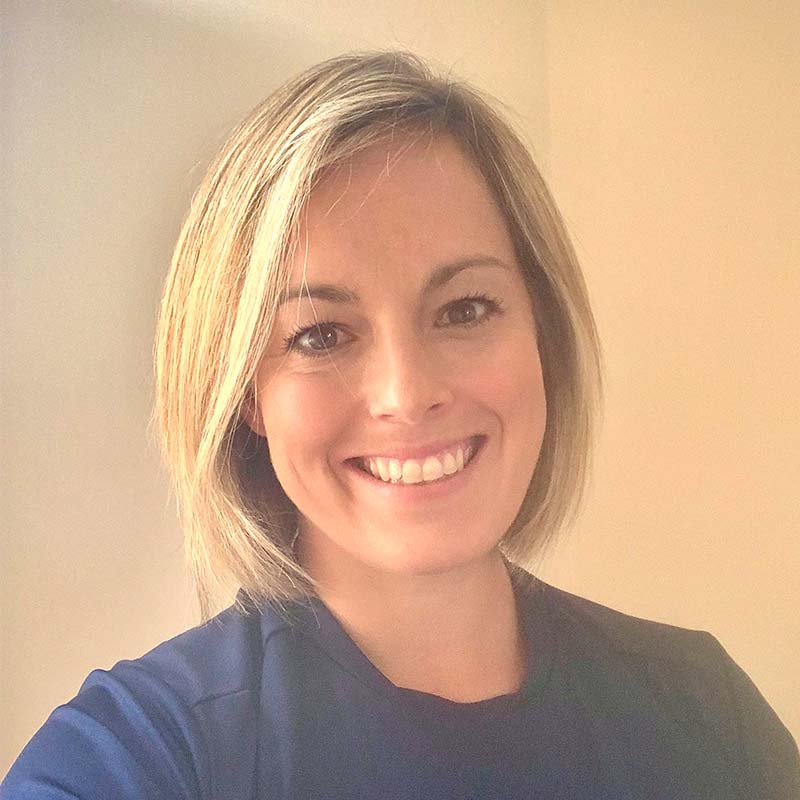
Dr Nicola Robinson
Programme Leader
I enjoy influencing and developing students' knowledge of their outlook on the coaching landscape, making sure literature can be applied and utilised through hands on activities and workshops
I enjoy influencing and developing students' knowledge of their outlook on the coaching landscape, making sure literature can be applied and utilised through hands on activities and workshops
Dr Robinson completed a PhD in Exercise Physiology at LJMU while working with athletes and training at international level for her sport Modern Pentathlon. Nicola's first research papers centred around the Athlete Artery concept and her more recent work involves multidisciplinary inputs, looking at youth athletes training loads, cycling pacing differences in novice and advanced, exploring the Paralympic reclassification system within athlete identity and gaze behaviour in laser run athletes. She has previously worked at the English Institute of Sport as Lead Physiologist for British Paralympic Swimming, which included the Paralympic Games, and has provided sport science support to Tournament Golfers.


The Sport Coaching course has allowed me to develop my coaching skills with both children and adults and learn a variety of aspects of coaching, such as sport science. I have met some great people who I will be friends with for life.
Career paths
Once you graduate, you have a wide range of options open to you.
Many of our graduates go on to work as sports coaches with private or overseas coaching service providers, national governing bodies of sport, or in sport development. Others choose to progress onto further study such as a PGDE, PGCE Initial Teacher Training programmes or other postgraduate studies.
Student Futures - Careers, Employability and Enterprise Service
A wide range of opportunities and support is available to you, within and beyond your course, to ensure our students experience a transformation in their career trajectory. Every undergraduate curriculum includes Future Focus during Level 4, an e-learning resource and workshop designed to help you to develop your talents, passion and purpose.
Every student has access to Careers Zone 24/7, LJMU's suite of online Apps, resources and jobs board via the LJMU Student Futures website.
Tuition fees and funding
- Full-time per year:
- £9,535
- Placement year:
- £1,905
Fees
The fees quoted above cover registration, tuition, supervision, assessment and examinations as well as library membership and student IT support with access to printed, multimedia and digital resources including programme-appropriate software and on campus Wi-Fi.
Financial Support
The University offers a range of scholarships to support students through their studies. You'll find all the information you need on our specialist funding pages, including details of the Student Support Fund and other activities to support with the cost of living.
Additional Costs
In addition to fees, students should also keep in mind the cost of:
- Accommodation
- Travel costs including those for placements, visas and travel for studying abroad and field trips unless paid for by LJMU
- Stationery, IT equipment, professional body membership and graduation gown hire
The University reserves the right to increase tuition fees in accordance with any changes to the maximum allowable fees set by the UK Parliament. In the event of such a change, any fee increase will be subject to a maximum cap of 10% of the total course cost as originally stated at the time of your offer.
A DBS check is not required for your application, however a DBS may be required for modules where there is a work based learning placement option. Work based learning placements that do not require a DBS check are available.
Entry requirements
Please choose your qualifications below to view requirements
Grades/points required from qualifications: BBC-ABB (112-128)
Work out how many UCAS points your qualifications are worth by visiting the UCAS Tariff Calculator.
Qualification requirements
How to apply
Securing your place at LJMU
UCAS is the official application route for our full-time undergraduate courses. Further information on the UCAS application process can be found here https://www.ljmu.ac.uk/study/undergraduate-students/how-to-apply.
Your university life
From accommodation and academic support to clubs and societies. Find out what LJMU has to offer.
Related Links
Talk to our students
Connect with a current LJMU student for advice and guidance on university life, courses and more.
See what our students are saying
At LJMU we want you to know you're making the right choice by studying with us. You can see what our students are saying about their experience with us through their reviews on the following websites:
Related Links
News and views
Browse through the latest news and stories from the university
The university reserves the right to withdraw or make alterations to a course and facilities if necessary; this may be because such changes are deemed to be beneficial to students, are minor in nature and unlikely to impact negatively upon students or become necessary due to circumstances beyond the control of the university. Where this does happen, the university operates a policy of consultation, advice and support to all enrolled students affected by the proposed change to their course or module.
Further information on the terms and conditions of any offer made, our admissions policy and the complaints and appeals process.




























